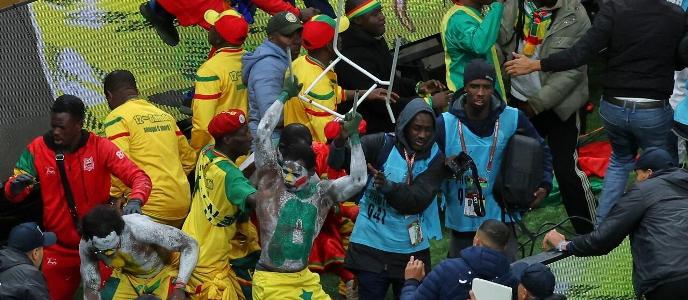The Hague – 16 September 2025
For more than two decades, survivors of the Darfur conflict have waited for this moment. On 6 October, judges at the International Criminal Court (ICC) will deliver a verdict that could define how justice is remembered in one of Africa’s bloodiest chapters.
The man at the centre of the case is Ali Muhammad Ali Abd-Al-Rahman, better known as Ali Kushayb. Once a feared militia commander in western Sudan, he stands accused of directing brutal attacks that tore through villages in Darfur between 2003 and 2004. The prosecution alleges that he led fighters responsible for mass killings, rapes, and forced displacement, crimes that form part of 31 charges of war crimes and crimes against humanity.
A Long Road to The Hague
Abd-Al-Rahman surrendered to the ICC in 2020 after years on the run, becoming the first suspect from the Darfur conflict to face trial in The Hague. His case is seen as a landmark: the Darfur war prompted the UN to refer Sudan to the ICC in 2005, but political resistance and instability delayed justice for years.
The trial opened in April 2022. Over the following months, 74 witnesses came forward: survivors who relived harrowing memories of attacks on their villages, experts who traced the command structure of militias, and defence witnesses who contested the credibility of the evidence.
Voices of Survivors
In testimony heard by the Court, villagers described the night their homes were torched and loved ones killed. One witness, who lost her husband and two children in an attack, told judges she had “waited half a lifetime for someone to listen.” Others recalled being driven into the desert with nothing but the clothes on their backs.
For survivors, the verdict is not just about one man, it is about whether the world still remembers Darfur. “We want justice so our children know the truth,” said a representative of victim groups in Sudan.
Justice and Its Limits
The ICC has stressed that Abd-Al-Rahman is presumed innocent. The panel of three judges, Joanna Korner, Reine Alapini-Gansou, and Althea Violet Alexis-Windsor, will only convict if the prosecution’s case meets the strict standard of proof beyond reasonable doubt.
Even if convicted, Abd-Al-Rahman will not stand alone for the violence in Darfur. Many Sudanese still question why senior figures who backed or oversaw the campaign of violence have never faced trial. Critics of the ICC argue that justice has come too late and too selectively.
A Case With Global Significance
Yet, human rights advocates say the case matters deeply, not only for Darfur but for international justice itself. “It is a signal that crimes on this scale cannot be erased by time or politics,” said one campaigner.
The Darfur conflict, which erupted in 2003 when rebels took up arms against the Khartoum government, spiralled into one of the world’s worst humanitarian crises. UN estimates say 300,000 people were killed and more than 2.5 million displaced. The scars remain visible in refugee camps in Chad and among displaced communities still unable to return home safely.
What Happens Next
On 6 October at 14:00 local time, the ICC will read its judgment in public session, streamed live from The Hague. If convicted, Abd-Al-Rahman could appeal the decision. If acquitted, he could walk free, an outcome many victims say would be devastating.
For the survivors of Darfur, however, the judgment will be more than a legal ruling. It will be a reckoning with history, a chance for the voices silenced in the sand and smoke of western Sudan to be heard on the world stage.
Who is Ali Kushayb?
Former leader of the Janjaweed militia in Darfur.
Born in Sudan’s Wadi Salih region, he rose to prominence during the Darfur conflict.
Accused of leading attacks on towns and villages between 2003–2004.
Faces 31 charges of war crimes and crimes against humanity.
Surrendered voluntarily to the ICC in 2020 after years in hiding.
The Darfur Conflict Explained
Began in 2003 when rebel groups accused Sudan’s government of discrimination.
Khartoum responded by mobilising militias known as the Janjaweed.
Violence escalated into mass killings, rape, and scorched-earth campaigns.
UN estimates: 300,000 killed, 2.5 million displaced.
The ICC issued arrest warrants for senior figures, including former President Omar al-Bashir, but most remain at large.



